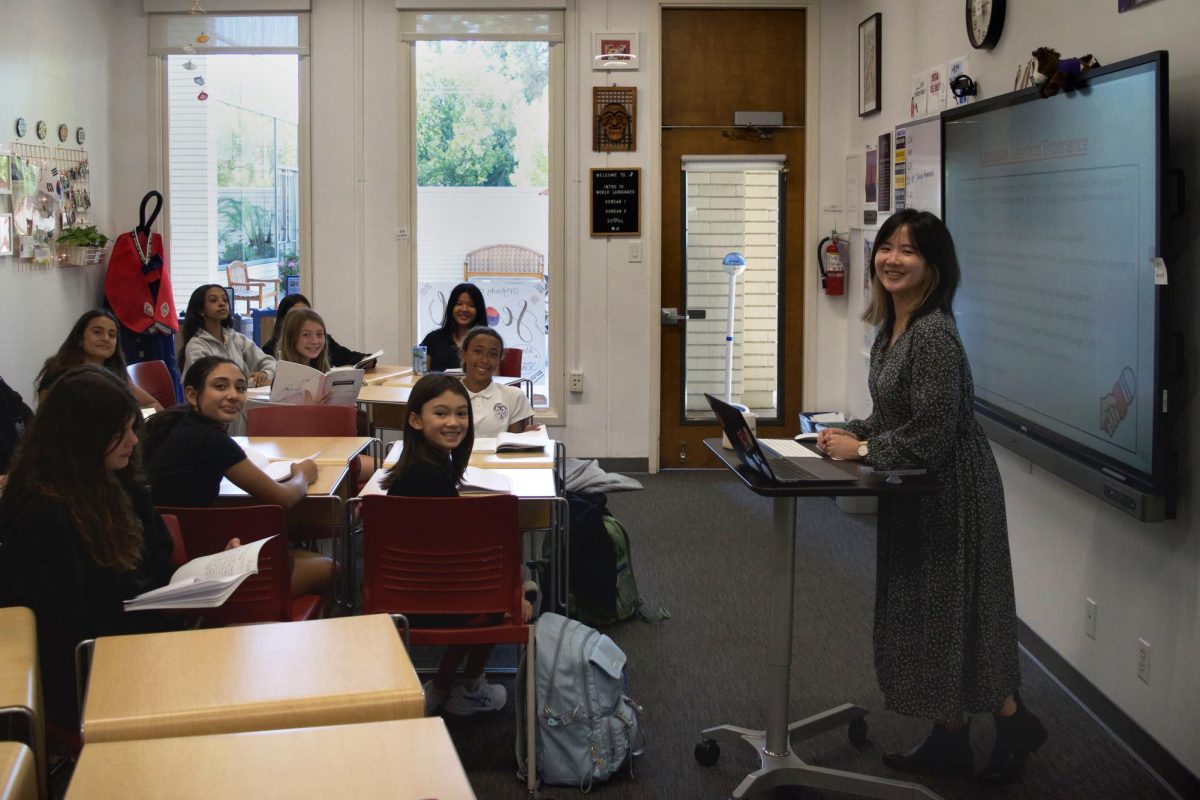Picture this: 7th grade. I zoomed into Marlborough (almost) fluent in Spanish and at a much higher level than my classmates taking Spanish IA. Through communicating with the World Languages Department, I was able to move up and start in Spanish II. The class taught me the grammatical, structural and written aspects of the language and helped me understand Spanish on a deeper level. I owe a lot of my current fluency to being in a higher level Spanish class from the get-go, and I’m thankful that the World Languages Department gave me that opportunity.
The option to transfer into a higher class has helped many Marlborough students like me who already have a background in a language to continue strengthening their skills. This year, students no longer have that option. Instead, Marlborough is piloting a new mandatory course that covers the foundations of all four languages offered by the School. Last May, the UltraViolet reported on the implementation of this class, focusing on the course’s intersection of culture and language. While I did not have the opportunity to take this course as a 7th grader, I can see how it will benefit students and give exposure to the non-European languages, which typically have fewer students.
Intro to World Languages is taught in English and allows 7th graders to study each language through a cultural and linguistic perspective. All students will enter 8th grade with the same level of preparation to take a single Level I course, instead of having to take two introductory classes: IA and IB.
“Intro to World Languages is a language course that doesn’t only focus on learning a specific language; it goes beyond language learning to explore different topics such as social justice issues, geography, linguistics and more — topics that we don’t usually get to talk about in a general language class,” Head of World Languages Department Andrea Fuentes said. “You are learning so much about what language is, in addition to the mechanics of learning a language.”
However, this new system also has its potential pitfalls. For example, my younger sister Mattea Vergara ‘29 was unable to switch into a higher level of Spanish, even as a heritage speaker. She also did not have the ability to take Spanish in addition to Intro to World Languages due to the absence of free periods in the 7th graders’ schedules. So some 7th graders can get caught in a difficult situation and be unable to benefit from a more advanced language class like I did.
While advanced students will be able to start in a higher level course in 8th grade, research has shown that this could potentially lead to some language loss during the 7th-grade year.
“While the Intro to World Languages class is going to give me meaningful exposure to different languages, I think that the option to take a higher level of Spanish would have helped me retain some of my skills that I might consequently lose this year,” Vergara said.
The concept of an Intro to World Languages course is intriguing as an option, but Marlborough should open the doors to creating exceptions, leaving everyone with a language course that works for them. Taking an additional language on top of the course could be optimal, but that is just not possible within the 7th graders’ schedules. So, in my opinion, new student language exposure could be done in less time-consuming and restrictive ways in order to avoid extensive standardization, such as more information surrounding each language during course requests, Intro to World Languages being optional instead of mandatory, a concrete placement-test system for exceptions or a new student event spotlighting each language.
Regardless, Intro to World Languages does mark the straying away from the consistently Eurocentric language dominance, and it will undoubtedly have a positive impact on many 7th graders.






